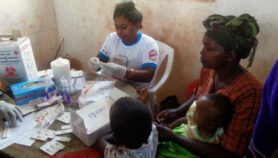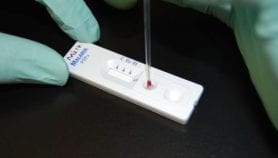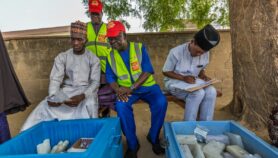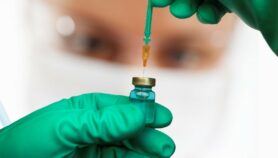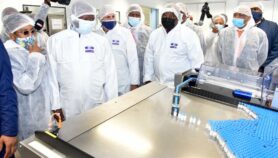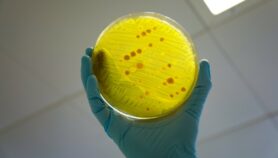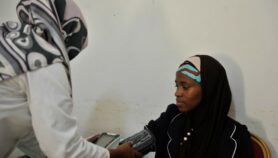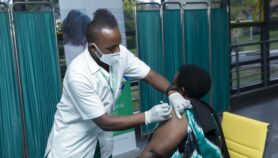16/08/21
New partnership to help Africa create COVID-19 vaccines
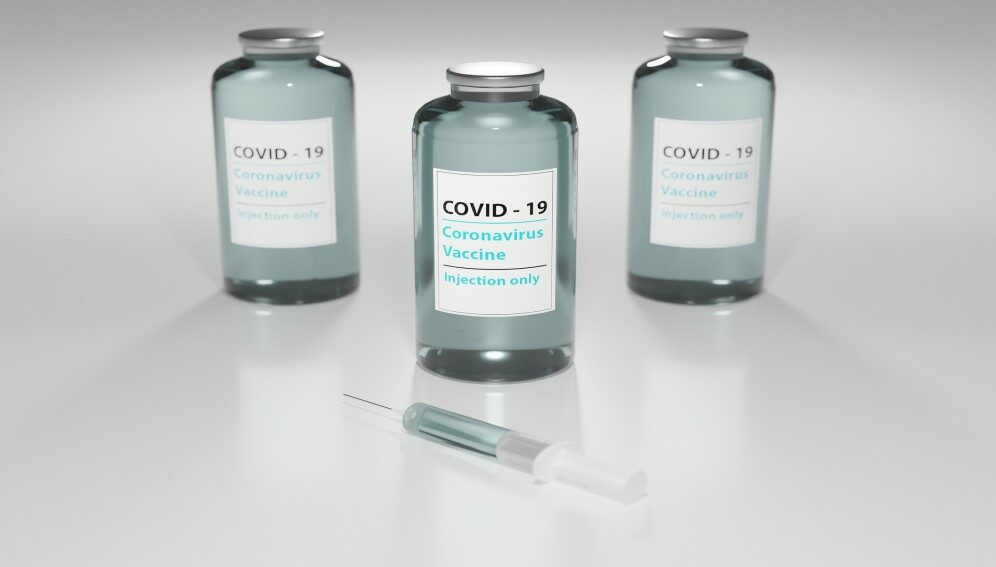
By: Tiyese Jeranji
Send to a friend
The details you provide on this page will not be used to send unsolicited email, and will not be sold to a 3rd party. See privacy policy.
[CAPE TOWN] Africa’s COVID-19 vaccine delivery and access could improve by 2022 as Biovac, a South Africa-based biopharmaceutical company, is set to handle Pfizer and BioNTech COVID-19 vaccine manufacturing and distribution for African countries.
Though Biovac is only doing fill and finish, Pfizer and BioNTech tells SciDev.Net, they are in continuous conversations with the African Union on ways to expand fair and equitable access to the Pfizer-BioNTech COVID-19 vaccine and will continue to look for the best pathways to distribute their doses across the continent.
“This is a very good news as we currently have very limited vaccines access in the country and the continent.”
Benjamin Kagina, Vaccines for Africa
Fill and finish is a manufacturing process often used by third parties that have contracts with companies with patents to fill vials with medicines and finish their packaging for distribution.
The availability of COVID-19 vaccines in Africa has been a challenge since vaccination against the disease began globally in December last year, with the continent having just 1.58 per cent of its population completing their COVID-19 vaccinations as of last week (4 August), according to the Africa Centres for Disease Control and Prevention.
Pfizer and BioNTech announced the signing of a letter of intent with Biovac last month (21 July) to boost the production of COVID-19 vaccines on the continent. Biovac is expected to begin the manufacture of finished doses in 2022 and produce at least 100 million doses annually solely for Africa, the statement indicating the letter of intent shows.
“What we [Africa] want is to ultimately do the entire manufacturing. Though we [Africa] are only doing fill and finish now, it is also an absolutely critical step,” says Willem Hanekom, a clinician scientist and director at Africa Health Research Institute, South Africa.
Keymanthri Moodley, a distinguished professor at the Department of Medicine at the University of Stellenbosch in South Africa, adds: “This will speed up vaccine delivery and improve access considerably. South Africa and a few other African countries could potentially manufacture vaccines from scratch but there is a need for technology transfer and capacity development.”
Benjamin Kagina, a senior researcher and vaccinologist at South Africa-based Vaccines for Africa, says, fill and finish stages are as important as the initial stages.
“There is a huge emphasis on the quality control checks of this process. Pfizer is using about 20 manufactures for ‘fill and finish’ globally in three continents, and Biovac is one of these. The only one in Africa so this is worth celebrating as all vaccines coming out of Biovac will be for the Africa region,” he says.
Kagina explains that this move means that there could be increased production capacity, which translates to more vaccine doses available to South Africa and the rest of Africa.
“This is a very good news as we currently have very limited vaccines access in the country and the continent. To South Africa, it shows the big pharma has confidence in the technical and scientific capacity of South Africa. This confidence will hopefully grow to involve other types of vaccines,” he adds.
Kagina suggests that the continent has the capacity to produce COVID-19 vaccines given its experience in producing other vaccines but substantial research and development investments are needed to generate the know-how.
“South Africa used to make its own vaccines such as BCG, [a vaccine for tuberculosis] and DTP, [a vaccine for tetanus],” says Kagina. “I think commercial viability was the problem. Institut Pasteur in Dakar, Senegal, has been manufacturing yellow fever vaccines since 1932. So, there is capacity and expertise to make the vaccine from scratch in Africa. All we need is the right business model that includes partnerships,” he says.
Kagina tells SciDev.Net that the Pfizer and BioNTech collaboration is a great example where sharing of know-how has resulted in a vaccine that will save lives.
“There is huge potential for capacity development: research opportunities, internship opportunities, collaboration opportunities, [and] so much more,” Kagina explains.
Morena Makhoana, chief executive officer of Biovac, told SciDev.Net that the importance of diversification of manufacturing on different continents cannot be underestimated.
“With new [coronavirus] variants coming and the likely need for [COVID-19 vaccine] boosters, the capacity on the continent is and will be much needed,” he says, adding that it is worth celebrating as this will be the first vaccine using the mRNA technology to be produced in Africa and the southern hemisphere.
But Fatima Hassan, founder of Health Justice Initiative, a public health initiative focusing on treatment and vaccines for COVID-19 and HIV says Pfizer and BioNtech ‘fill and finish’ agreement with BioVac, is woefully inadequate in light of the need in low- middle-income countries, low vaccines availability on the African continent. “This agreement continues with the status quo of centralised production and centralised IP, tech and know how. Pharmaceutical companies remain in control of the production and supply,” she says.
“We have heard arguments that there is ‘no capacity in Africa”. This announcement disproves that argument. Although we have not seen the terms of the agreement, this is fill and finish and contract manufacturing, dependent on importation of drug substance, and presumably decision making control is held by Pfizer and BioNTech,” she says adding that this is still creating dependence, rather than ensuring capacity in Africa to manufacture mRNA.“To expand global manufacturing capacity means that countries and manufacturers must also have the freedom to produce the drug substance and to make their own production, supply and pricing decisions. We would all like to see full terms and ask Pfizer why it cannot issue a full license to multiple manufacturers. Why does Pfizer choose and play god during a pandemic?” she asks.
This piece was produced by SciDev.Net’s Sub-Saharan Africa English desk.







